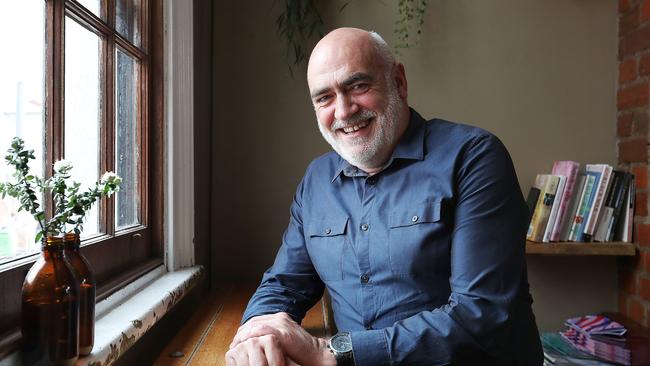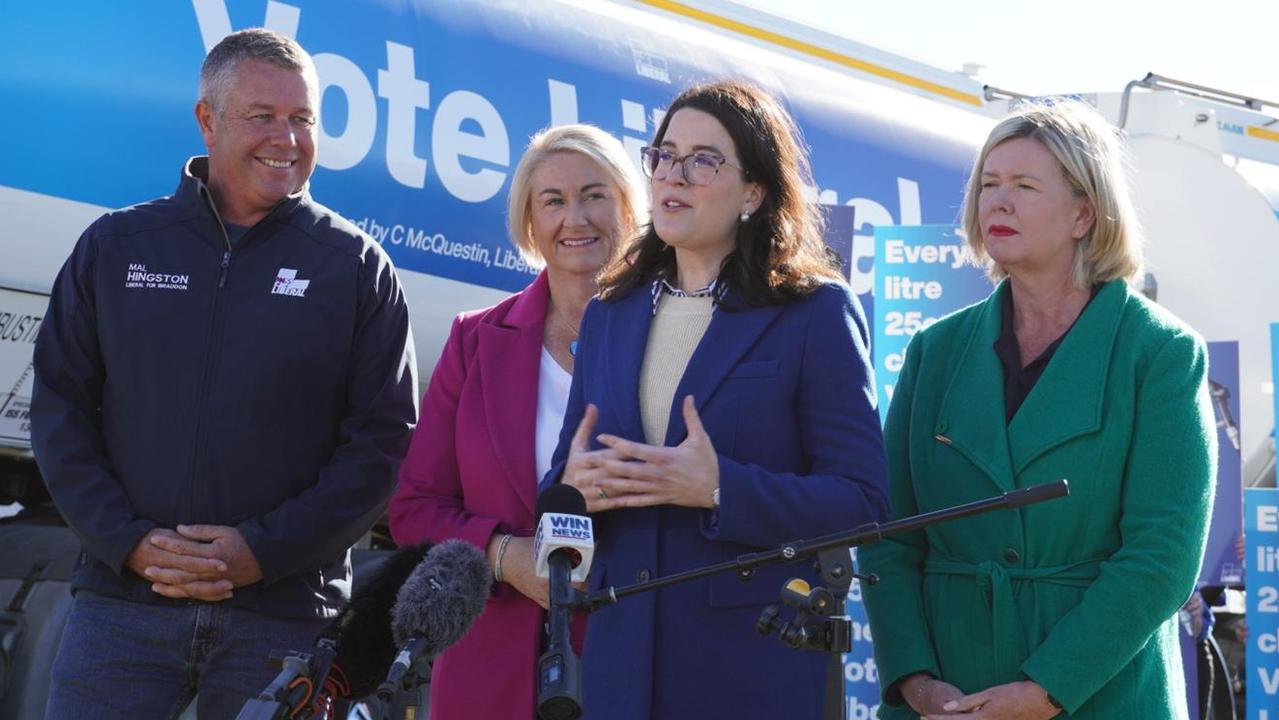Cafe Society: Doing justice for Tasmania
Law needs to be an instrument to help achieve a fair, more just society, says internationally known lawyer Tim McCormack.

Tasmania
Don't miss out on the headlines from Tasmania. Followed categories will be added to My News.
WHEN the great Hobart flood of 2018 gushed through the University of Tasmania law library gathering books and strewing them over a carpark and oval, Professor Tim McCormack didn’t read too much into it.
It was his second week as law dean at the faculty and his focus was on the mop-up.
But a visiting indigenous scholar offered a symbolic interpretation of the loss of 4000 books in the May deluge, for which the university damage bill was $15 million.
“The scholar from the University of Hawaii said spirits are telling us it’s time to cleanse ourselves of the laws of the past and to have a new approach,” says McCormack over tea at Pollen Tea Room at Battery Point.
“I thought, whoa … but I thought it was a wonderful perspective. I was reminded of the importance of listening to a perspective that’s not my own, and that I have blind spots because I am a white privileged male.”
MORE CAFE SOCIETY:
MARY MASSINA: CITY WITH A DEFINITE POINT TO PROVE
ROB PENNICOTT: NICHE DREAMS SEDUCE SEAFARER
ROSALIE MARTIN: INSPIRING HIGH HOPES FOR OUR STATE
SCOTT RANKIN: FORGING JUSTICE THROUGH ART
REG GRUNDY: HELPING TOURISTS GO WILD IN WILDERNESS
McCormack, who grew up in Burnie, is recognised as a leading international humanitarian lawyer. Erudite and eminent, he also comes across as open-spirited and down to earth.
“I want to be the head of a law school that’s committed to law as an instrument to achieve a fair, more just society,” he says. “I don’t want to head up a law school that sees law as a ticket to a lucrative career.”
McCormack is a global specialist on the law of armed conflict and the prosecution of war crimes. He remains a special adviser on war crimes to the prosecutor of the International Criminal Court in The Hague, where he has worked on cases including the trial of former Serbian dictator Slobodan Milosevic.
He is also a director of World Vision Australia.
It is meaningful work and he wants to give students the opportunity to develop their own keen sense of mission.
At a personal level, McCormack is thrilled to be home after decades away, mostly in Melbourne.
He feels aligned at last.
“Finally, my physical and emotional beings are together,” he says.
When the law school turns 125 next year, McCormack will use the anniversary to bust some myths.
Foremost is a view that if you want a successful law career you need to go study interstate.
“We are actually ranked very highly in Australia.”
He points to recent “spectacular successes”, including mooting teams’ domination of national competitions.
He says the faculty’s field program is also particularly strong. This year students had the chance to help provide legal advice under supervision to refugees. And he sees more community engagement opportunities for students as the university deepens its commitment in the North.
“It’s about what sort of worthwhile contribution we can make to the community. There’s some huge challenges in the North and North-West about access to justice. In socio-economic-deprived communities, challenges about access to justice go hand- in-hand with all the key indices of under-privilege.”
People often ask McCormack how they can make a positive difference in society.
“I feel like kicking them up the bum,” he says with a chuckle. “If students come to me and say how can I be a human rights lawyer, I think what they often mean is how can I get a job in Geneva or The Hague or New York.
“You want to be a human rights lawyer? Go and work with your local community legal referral service and help more Tasmanians who absolutely cannot afford access to justice. That is really at the coalface of where people have no idea how to go about arguing their position.”
Opportunities to contribute are ever-present. “My mum, at 88 years of age, visits prison twice a week to provide art and craft classes with female inmates. Jeepers! I hope when I’m in my ninth decade I still care.”
This month McCormack used the inaugural Human Rights Week Tasmanian State of the Nation Address to call for a Charter of Human Rights in the state.
He is frustrated that 11 years after a Law Reform Institute of Tasmania report recommended such legislation, receiving a record 407 public submissions (94 per cent in support), nothing has happened. Avenues for redress through the Anti-Discrimination and Ombudsman’s offices are important but inadequate, he says, with limited power that is further stymied by chronic underfunding.
“We need comprehensive and systemic legislation that is properly resourced,” he says.
Achieving reconciliation is another core concern.
“Societies that pretend the past didn’t happen, that want to forget and move on, never enjoy life in full,” he says.
“That’s negative, though. There is a really positive aspect when we think of Tasmania’s long history of 40,000 years of continuous habitation.
“It is absolutely part of what makes this place as special as it is. And we ought to embrace that and move forward together with our indigenous brothers and sisters.”


